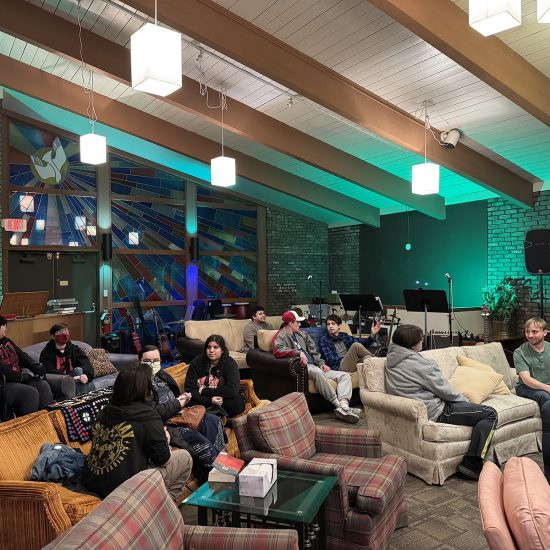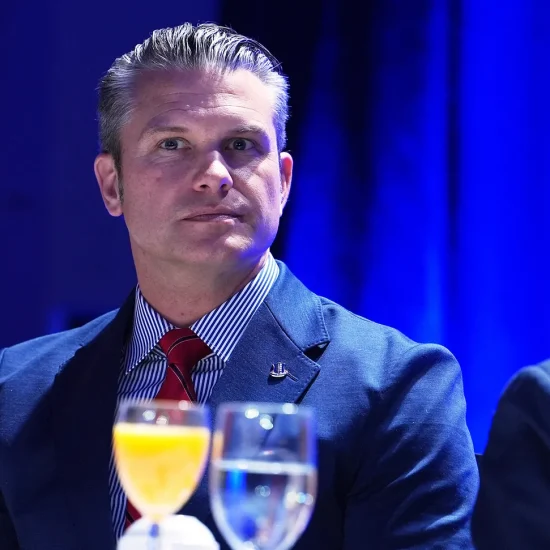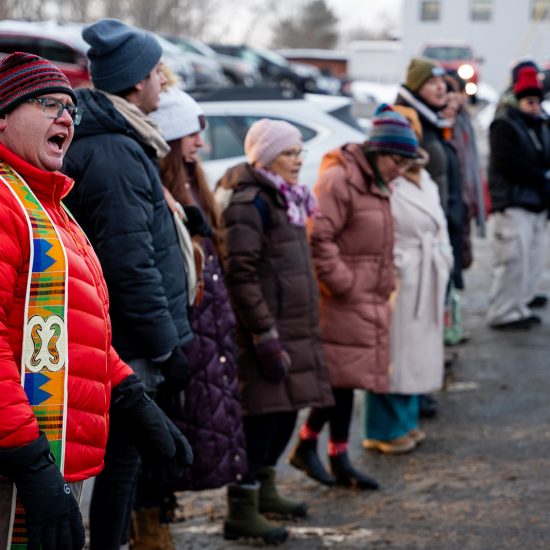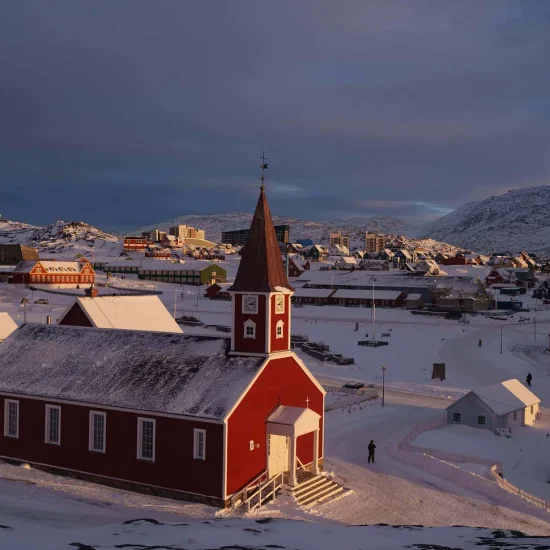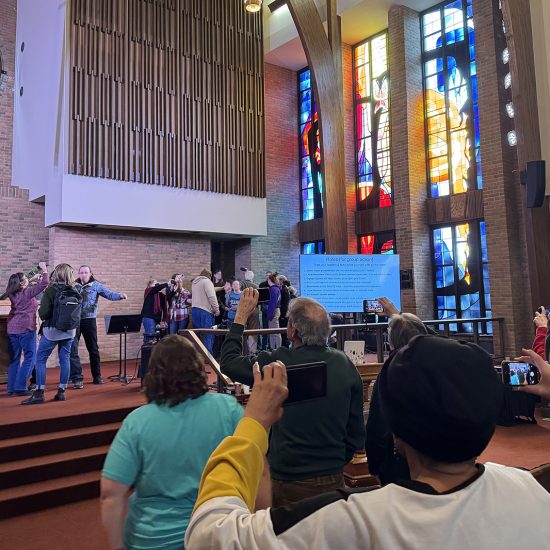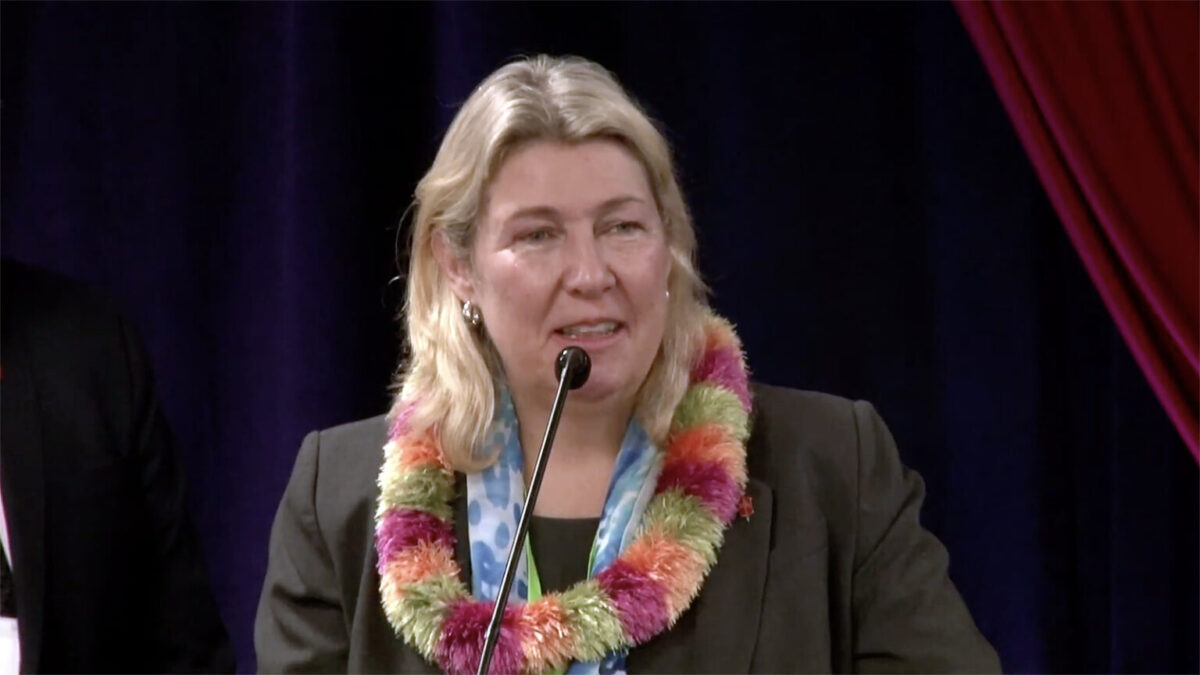
(RNS) — The first two openly gay and married bishops in the United Methodist Church were elected to their positions under a cloud. The denomination’s rulebook did not allow LGBTQ+ people to be ordained, much less consecrated as bishops.
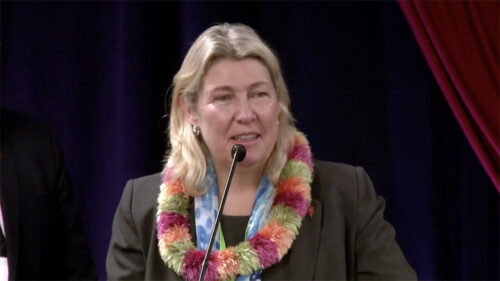
The Rev. Kristin Stoneking speaks after being elected bishop of the United Methodist Church’s Western Jurisdiction on July 12, 2024, in Spokane, Washington. (Video screen grab)
But for the first time in its history, the United Methodist Church has elected a third openly gay and married bishop — this time in the clear light of day.
Kristin Stoneking, an ordained pastor and the associate professor of United Methodist Studies and Leadership at Pacific School of Religion in Berkeley, California, was elected bishop last week in the Western Jurisdiction of the church. Her election comes three months after the United Methodists voted at their General Conference to eliminate all restrictions on the full participation of queer members.
Stoneking will oversee some 300 churches in the denomination’s Mountain Sky Conference, which includes congregations in Montana, Wyoming, Colorado, Utah, and a small part of Idaho. She will be based in Denver.
“We’re not done trying to make sure that the world is a welcoming and caring place for everyone, and that includes LGBTQ persons,” Stoneking said.
Following the departure of 25% of its U.S. churches who left over disagreements over LGBTQ+ inclusion, the United Methodist Church agreed at its General Conference it would not add any more bishops over the next four years. But in the weeks following the convention, one bishop decided to retire and another took long-term disability, leaving two unexpected vacancies.
The Western Jurisdiction of the church had two already planned bishop retirements in need of replacement and had hoped for a transfer of two bishops from other regions. But when it became apparent the denomination was down two additional bishops, the Western Jurisdiction decided to elect two new bishops: Stoneking and Sandra K. Olewine. Olewine will serve the California-Nevada Conference. Stoneking will replace Bishop Karen Oliveto, the denomination’s first openly gay married bishop, who, at age 66, is retiring.
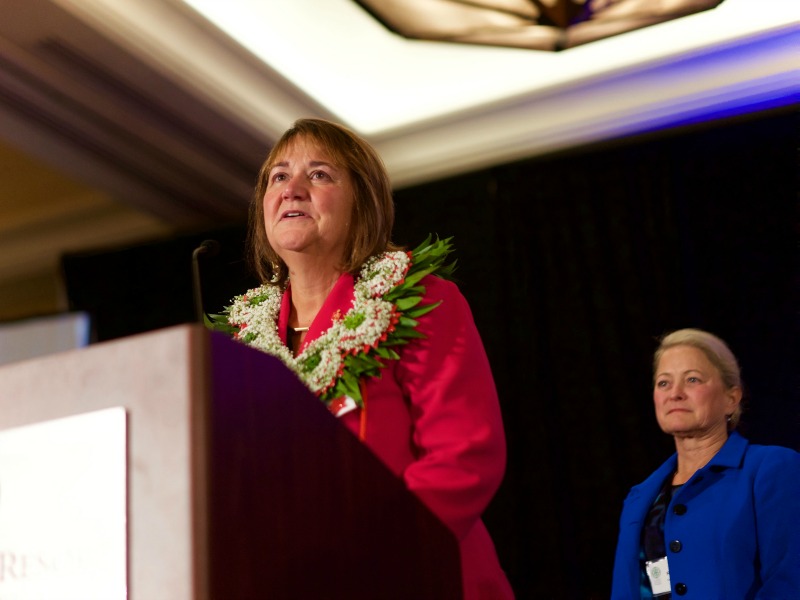
On the 17th ballot, the Western Jurisdiction elected the Rev. Karen Oliveto to the episcopacy of the United Methodist Church in 2016. (Photo by Patrick Scriven, United Methodist Church PNW Conference)
Oliveto was elected to the Western Jurisdiction in 2016 in defiance of denominational rules that did not allow LGBTQ+ ordination. Then, in 2022, the Western Jurisdiction, the most liberal in the denomination, once again defied church rules and elected an openly gay married bishop — Cedrick D. Bridgeforth. He serves the Greater Northwest Conference that spans Alaska, Idaho, Oregon, Washington and small parts of Montana and Canada.
At April’s General Conference meeting in Charlotte, North Carolina, United Methodists voted to repeal their denomination’s condemnation of homosexuality from its rulebook. For 52 years, the rulebook had stated that the practice of homosexuality was “incompatible with Christian teaching.”
At that same meeting, it dropped a ban on the ordination of gay clergy and eliminated a provision that forbade its ministers from officiating at same-sex marriages.
Stoneking is among the first to benefit from the lifting of all those restrictions. An estimated 324 UMC clergy or candidates for ordination are gay. Of those, about 160 are in same-sex marriages — many of them performed outside the church and in private because of the restrictions.

The Rev. Kristin Stoneking was elected bishop in the United Methodist Church on July 12, 2024, and will serve in the Mountain Sky Conference beginning Sept. 1. (Courtesy photo)
Stoneking is married to Elizabeth Campi, and they have two children. The two met at Garrett-Evangelical Theological Seminary in Evanston, Illinois, and have been together as a couple for 32 years.
She has served as a local church pastor, district superintendent, and campus minister. Most recently, Stoneking taught United Methodist students at Pacific School of Religion the denomination’s history, polity, and doctrine. From 2013-2107, she was the national executive director of the Fellowship of Reconciliation, the oldest interfaith peace and justice organization in the United States.
Now as bishop, Stoneking said her first priority is to help the church restructure the worldwide denomination to give each region greater equity in tailoring church life to its own customs and traditions, a plan known as regionalization.
Regionalization would allow equal standing to its worldwide regions, including Africa, Europe, the Philippines, and the United States to set their own rules on various issues, including LGBTQ+ rights.
Each conference or region must ratify the new regionalization plan in the coming year for it to formally pass. Many in the church believe regionalization is the last and best option to avoid further schisms on matters of same-sex marriage and ordination of LGBTQ+ people.
“There is a tremendous spirit of openness and possibility in the United Methodist Church right now,” Stoneking said. “I am very excited about that.”

